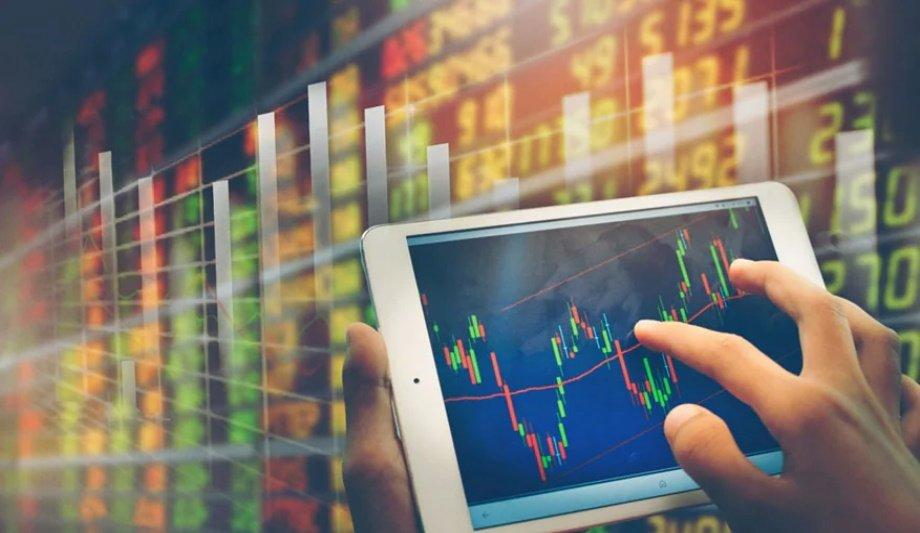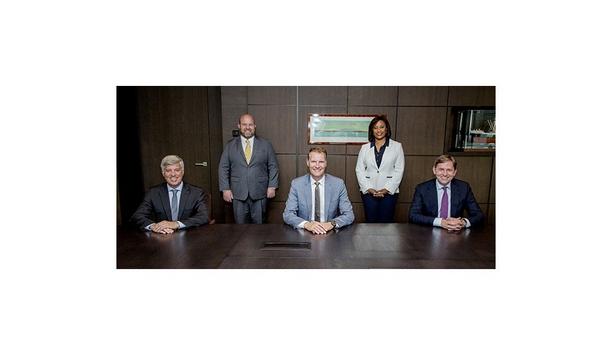With the traditional peak season approaching, the outlook for both ocean and airfreight remains buoyant although capacity constraints and service reliability continue to present challenges.
Maersk shares the latest market trend before highlighting the issues and challenges they face and also explain Maersk’s latest solutions to help one keep cargo moving.
Market trend
While global demand for logistics services remains strong, COVID-19 continues to cause supply-side problems: low container availability, tighter air capacity, longer dwell times outside ports, and trucking and warehousing bottlenecks.
The outlook for the rest of the year remains uncertain given the disruptions in both demand and supply. On the demand side, high household savings in the US and Europe should support consumer demand. As vaccination rates increase and lockdowns end, more people are likely to travel, leading to a rebalancing towards spending on tourism and lifestyle-related services.
Nonetheless, it is likely that inventory replenishment will support the demand to the end of 2021 at least. On the supply side, delivery times remain lengthy and there is little visibility when equipment shortages and capacity constraints will ease.
Trending theme
- Shipping delays in Europe are impacting Asia and Maersk anticipate the situation will worsen.
Unprecedented port congestion, driven by rapidly increased demand and the negative impact of COVID-19 mitigation measures, has caused extensive delays, particularly on services from Asia to North Europe. These accumulated delays are causing slippage of more than seven days between scheduled and actual departure dates. The situation is particularly challenging at several hub ports across Northern Europe. Mitigating those disruptions is a priority for Maersk. Increased delays at European ports together with a slower corresponding truck and rail service connections will delay the return of vessels to Asia, further delaying imports and the supply of empty containers. With the extensive ocean network and landside operations, Maersk will work with customers to try and minimise these delays. Global disruptions will affect the supply of empty equipment in Asia and Maersk are adding new and leased containers to mitigate the impact. With the peak season approaching, please take vessel delays into consideration when planning the supply chain.
- Empty equipment stock in North America is rising once again.
The container equipment stock status in North America continues to be fluid as supply chain disruptions make repositioning efforts incredibly complex and challenging. While the initial drop in volume brought on by the Yantian disruption had allowed the teams the opportunity to clear out some of the excess stock, the slide sailings that followed had the opposite effect as empty containers sat awaiting vessel arrivals for repositioning back to Asia. Now with the peak surge, severe congestions are slowing down empty returns. This is not only hurting exporters as chassis availability becomes limited but it’s also causing vessels to return to light or underutilised thus exacerbating the equipment shortage in Asia.
To help combat this shortage Maersk have introduced both Extra Loaders and Gap Loaders to help normalise the network and to move surplus empties back to Asia. the success is still heavily dependent on customer’s support in turning empty containers back as quickly as possible, particularly in the Pacific Southwest where the situation is most pressed.
Ocean update
- Maersk expects strong export demand from Asia to continue and ocean space is projected to be tight. For time-sensitive goods, Maersk Airfreight service is a reliable and effective alternative. Maersk remains focused on securing reliable coverage, equipment and capacity solutions for you.
- Export demand from Australia and New Zealand remains strong, impacting space and causing coastal bottlenecks. Schedule reliability remains low due to operational disruption, continued industrial action in Australia, the suspension of berthing windows and port congestion in Auckland. This is causing arrival delays of up to 9 days in Sydney and is increasing yard density at inland depots in Auckland. Maersk is considering additional schedule adjustments to improve schedule reliability.
For Auckland-bound imports, the preferred routing is via Tauranga and by rail to METROPORT in Auckland to avoid delays and limit any negative impact. Maersk has concentrated the key service calls at Tauranga as the main port of entry to the North Island.
- Equipment shortages remain an industry-wide challenge in Asia. The supply of 20-foot dry containers is sufficient, but 40-foot dry containers and 40-foot non-operating reefer containers are in short supply.
Air Freight update
Airfreight demand remains strong as shippers seek alternatives to the ocean ahead of the peak season. Tighter capacity is forcing shippers to book space earlier or take long-term charters. The International Air Transport Association reports that airfreight is now much more competitive, stating that air cargo is down from being 12-times more expensive than ocean pre-COVID to now being just 6-times more costly.
- Greater China: Shippers, to rebuild inventories and beat the peak season rush, are shifting from ocean to air and committing to longer-term charters. There is likely to be little additional airlift capacity compared with the first half. Customers should closely monitor their peak season requirements and adjust their capacity plans accordingly. Maersk Airfreight has added new routes and service options to help the customers adapt to the ever-changing market situation.
- Thailand, Malaysia and Singapore: Maersk sees strong demand in the coming months. Maersk offers cold chain solutions for urgent temperature-sensitive cargoes and can arrange charter flights for critical shipments. Maersk Sea-Air services from Kuala Lumpur and Singapore also offer extra flexibility.
- Vietnam, Cambodia, Myanmar: Export demand in Vietnam remains weak due to the impact from COVID-19, although exports from Vietnam and Cambodia are showing signs of revival due to demand in EU and US. Cargo volumes in Myanmar continue to be adversely affected by the political situation. Imports will see longer transit times and space constraints due to high demand at hub airports.
- Australia and New Zealand: COVID-19 related cancellations on some direct flight between Australia and New Zealand has put pressure on export capacity. There is increasing demand for space from New Zealand to Australia as ocean shipments are affected by delays and port congestion.
- Japan and Korea: Rates have declined slightly, except for US destinations. But space remains tight and demand is high, which requires longer lead-times. Customers are putting regular tenders on hold, carrying out incumbent only rate reviews and holding tenders more frequently with shorter validity periods. Maersk continues to offer tailor-made solutions including air charters and sea-air services to help manage disruption.
- Indonesia and Philippines: Air freight demand is driven by strong export demand for retail, garment and electronics products to the United States and Europe. In the Philippines, air cargo capacity to European destinations is higher than to the US but remains tight to both markets. Customers should make bookings at least 10 days before the planned departure date. Current transit times to European gateways are 3-6 days and 4-8 days to the US. In Indonesia, some airlines stopped or limited services from Soekarno–Hatta International Airport due to the two-week lockdown in early July which has affected capacity availability. Maersk suggests customers place bookings 10-14 days prior to departure.
Landside Transportation update
Availability, scheduling and capacity are all impacted by trucker shortages and congestion across Asia. Maersk continues to introduce extra services and a variety of solutions to reduce delays.
- Greater China: Seasonal demand for inland and China intercontinental rail transportation will increase. Maersk has launched the first dry port at Huzhou, Zhejiang province, with direct connections to Ningbo to help customers overcome supply chain uncertainties. The Maersk intercontinental rail team is running weekly block train services from Shandong province to Poland and to Germany.
For Inland Delivery, cargo operations at Yantian are now back to normal. Expected equipment shortages across South China depots will soon become a major challenge. For Inland Hubs, using road transport to connect rail and ocean gateways, offers more certainty on landside transportation although there could be container shortages.
- Japan and Korea: The Tokyo Olympic and Paralympic games may affect deliveries and turnaround times. Maersk’s mitigation measures include temporary container storage service at Bando Inland Container Depot, extended drayage service from Yokohama port, extended distribution delivery times and adjusted delivery dates.
Maersk expects strong demand for the Maersk AE19 ocean-rail service to continue for the rest of this year, impacting equipment availability and capacity for both ocean and rail. Port congestion at the Russian Far East rail gateway has negatively impacted schedule reliability. Maersk intercontinental rail is offering additional capacity, mainly to Europe, with faster transit times than the ocean.
- Vietnam, Myanmar, Cambodia: There is port congestion in Vietnam due to an escalating COVID-19 situation. Containers are only allowed to gate-in 72 hours prior to ETD causing trucking capacity constraints. On certain corridors, drivers must present a negative COVID-19 certificate, leading to extra costs and longer waiting times. Higher cargo volumes will increase congestion at Ho Chi Minh City and Sihanoukville ports. Maersk will launch the first block-train intercontinental rail service from North Vietnam to Europe, offering an alternative to the ocean with better reliability and improved transit times.
For Cambodia, peak season will result in trucking capacity constraints. Capacity has been made available for the land-sea product via Vietnam and Maersk recommends customers use this as a reliable alternative solution instead of shipping via Sihanoukville. For Myanmar, the political situation has stabilised, and capacity is slowly returning to normal levels.
- Australia and New Zealand: With vessel omissions due to delays at the Sydney terminals, Maersk continue to offer the Maersk Connect service with landside transportation to help avoid delays.
- Indonesia and Philippines: The Philippine Port Authority has announced a 10% rise in cargo-handling tariffs at major Manila ports and an initial 2% increase will start being charged soon. The Emergency Restriction between 3-20 July to control the COVID-19 situation in Java & Bali could negatively impact the logistics industry, although trucking capacity for inland deliveries is sufficient to meet customer demand. Implementation of a Transport Management System for trucks has reached 80%, helping customers plan shipments more efficiently.
- Thailand, Singapore, Malaysia: Both Thailand and Malaysia are under COVID restrictions and as such there will be some impact on landside movements. The well-being of the supply chain is always the top priority.










